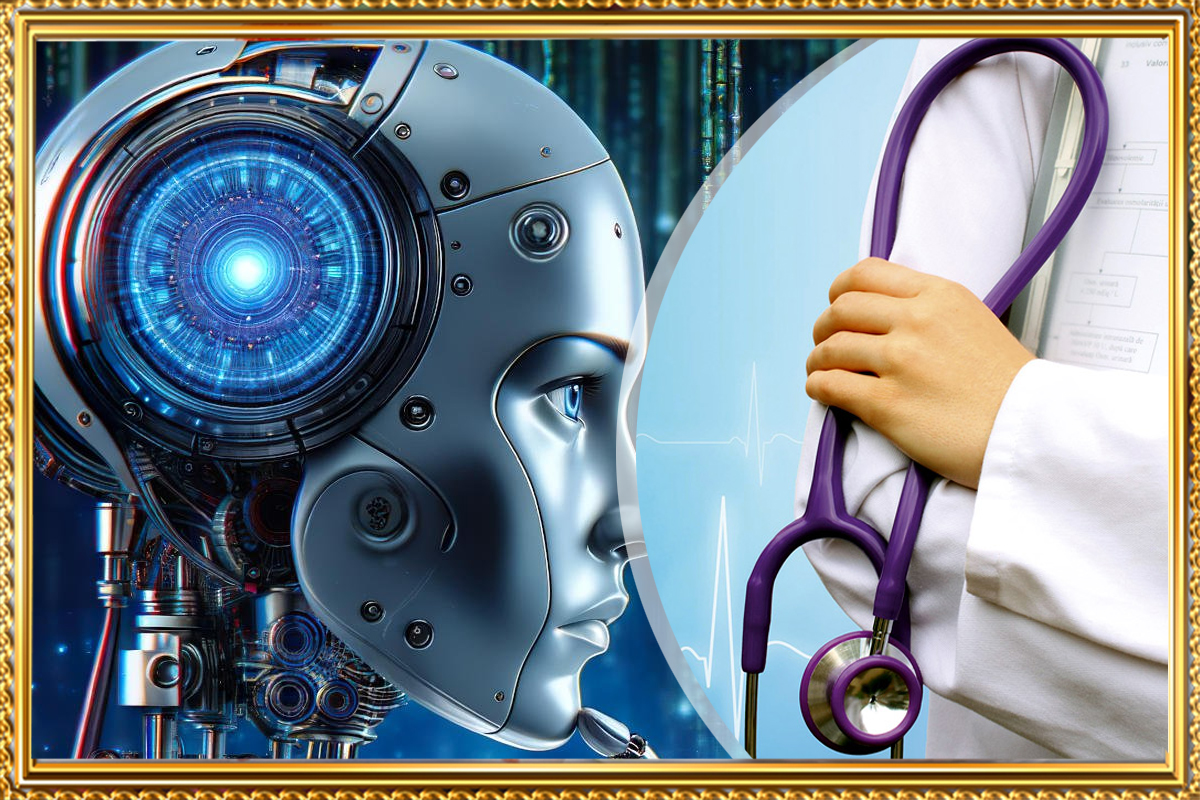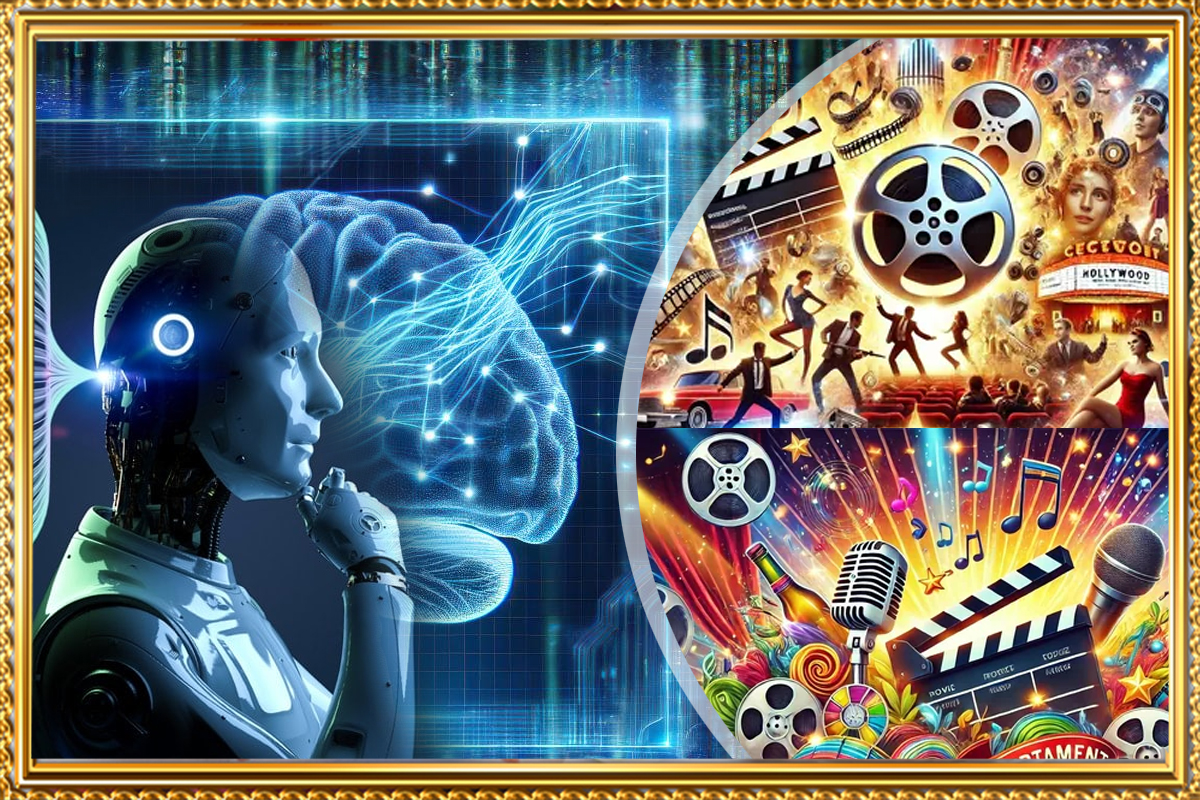How Artificial Intelligence Enhances Healthcare Software Features

Artificial Intelligence (AI) is revolutionizing the healthcare industry, transforming everything from diagnostics and treatment to administration and patient care. With AI-powered healthcare software applications, medical professionals can improve efficiency, enhance decision-making, and provide better outcomes for patients. This blog explores the multifaceted role of AI in healthcare, its benefits, and its potential for the future.
How Does Artificial Intelligence Contribute to Healthcare Software Applications?
How Does Artificial Intelligence Impact the Efficiency of Healthcare Software Applications?
How Does Artificial Intelligence Help Healthcare Startups?
What Are the Emerging Artificial Intelligence Applications in Healthcare?
How Is Artificial Intelligence Used in Healthcare?
In What Ways is Artificial Intelligence Shaping the Future of Healthcare?
Which Healthcare Areas Could See Improved Outcomes with Greater Integration of Artificial Intelligence?
In What Ways Is Artificial Intelligence Revolutionizing Healthcare Diagnostics and Treatment?
Innovative Uses of AI in Healthcare
Positive Aspects / Negative Aspects
FAQs
CONCLUSION
How Does Artificial Intelligence Contribute to Healthcare Software Applications?
AI plays a critical role in healthcare software by automating repetitive tasks, analyzing complex datasets, and offering predictive insights. Key functionalities include:
- Medical Imaging Analysis: AI algorithms analyze medical images with remarkable accuracy, detecting conditions like cancer and fractures.
- Predictive Analytics: AI predicts patient outcomes, hospital readmissions, and disease progression.
- Administrative Automation: AI streamlines scheduling, billing, and other administrative tasks, reducing human error.

How Does Artificial Intelligence Impact the Efficiency of Healthcare Software Applications?
AI enhances efficiency by reducing time-intensive processes and enabling faster decision-making. For example:
- Faster Diagnostics: AI can analyze test results in seconds, expediting critical diagnoses.
- Enhanced Data Management: AI organizes and interprets large volumes of patient data more effectively than manual methods.
- Improved Patient Monitoring: AI-powered wearables continuously monitor vital signs, alerting physicians to anomalies.
How Does Artificial Intelligence Help Healthcare Startups?
Healthcare startups benefit from AI by:
- Lowering Costs: AI reduces operational expenses by automating tasks.
- Improving Scalability: AI technologies allow startups to handle large patient volumes efficiently.
- Attracting Investments: Cutting-edge AI solutions often attract investors looking for innovative healthcare technologies.
What Are the Emerging Artificial Intelligence Applications in Healthcare?
Some emerging AI applications include:
- Virtual Health Assistants: AI chatbots assist with patient queries, appointment scheduling, and medication reminders.
- Genomics Analysis: AI processes genetic data to predict hereditary diseases and suggest preventative measures.
- Drug Discovery: AI accelerates the development of new pharmaceuticals by identifying potential compounds and predicting their efficacy.
How Is Artificial Intelligence Used in Healthcare?
Artificial Intelligence is already making a significant impact on the healthcare industry through various applications:
- Radiology: Tools like Aidoc and Zebra Medical Vision enhance diagnostic accuracy.
- Pathology: AI assists pathologists in detecting irregularities in tissue samples
- Surgical Assistance: Robotic surgery systems like da Vinci use AI to improve precision.
- Telemedicine: AI-driven platforms offer virtual consultations, improving access to care.
In What Ways is Artificial Intelligence Shaping the Future of Healthcare?
AI is shaping the future of healthcare by enabling:>
- Personalized Medicine: AI customizes treatments by analyzing genetic data, environmental conditions, and individual lifestyle factors.
- Preventative Care: Predictive analytics highlight at-risk patients before conditions develop.
- Global Access: AI-powered telemedicine reduces geographical barriers, making healthcare accessible to underserved regions.
Which Healthcare Areas Could See Improved Outcomes with Greater Integration of Artificial Intelligence?
Areas ripe for AI integration include:
- Chronic Disease Management: AI monitors conditions like diabetes and hypertension, providing real-time insights.
- Mental Health: AI-powered apps detect early signs of depression and anxiety through natural language processing.
- Elderly Care: AI-enabled devices enhance safety and independence for seniors.
- Benefits of AI in Healthcare Beyond Clinical Applications: 1. Training and Education: AI-powered simulations and virtual reality help train medical students and professionals.
- 2. Supply Chain Management: AI optimizes supply chain logistics for medical equipment and pharmaceuticals. 3. Fraud Detection: AI detects irregularities in billing and claims to combat healthcare fraud.
In What Ways Is Artificial Intelligence Revolutionizing Healthcare Diagnostics and Treatment?
AI is transforming diagnostics and treatment through:
- Early Detection: AI systems like Google's DeepMind identify diseases like diabetic retinopathy early.
- Precision Treatments: AI recommends targeted therapies, improving patient outcomes.
- Reduced Error Rates: AI minimizes diagnostic and treatment errors through advanced data analysis.
- Challenges in Implementing AI in Healthcare: 1. Interoperability Issues: Integrating AI systems with existing healthcare infrastructure is complex.
- 2. Regulatory Compliance: Meeting standards like HIPAA or GDPR for data protection can delay AI adoption. 3. Trust in AI: Healthcare professionals and patients may be hesitant to rely on AI for critical decisions.
Innovative Uses of AI in Healthcare
- AI in Mental Health: Natural language processing (NLP) identifies early signs of mental health conditions through analysis of speech and writing patterns.
- AI-Driven Prosthetics: AI integrates with advanced robotics to create prosthetics that adapt to user behavior and movements.
- Remote Patient Monitoring: AI analyzes data from IoT devices and alerts physicians to critical issues in real-time.
- AI in Dental Care: AI systems assess dental x-rays to identify cavities, gum disease, and other oral health issues.
- AI for Rare Diseases: AI accelerates diagnosis by identifying patterns in symptoms and genomic data.
Positive Aspects / Negative Aspects
- Improved Access: AI reduces geographical and financial barriers.
- Real-Time Monitoring: Wearables enable continuous health tracking.
- Scalability: AI applications scale effortlessly to meet demand.
- Negative Aspects: 1. Data Privacy Concerns: Handling sensitive patient data poses risks
- 2. Implementation Costs: Initial investments in AI can be high. 3. Bias in Algorithms: AI may perpetuate biases if trained on unrepresentative datasets.
FAQs
- How Does AI Enhance Medical Imaging? AI analyzes medical images to detect conditions like cancer and fractures with high accuracy.
- How does AI improve patient care? AI enables personalized treatments, continuous monitoring, and faster diagnoses.
- What are some examples of AI in diagnostics? AI tools like IBM Watson and Aidoc assist in disease detection and treatment planning.
- Can AI take over the role of doctors? No, AI serves as a supportive tool for doctors, enhancing their decision-making and efficiency rather than replacing them
- What is the future of AI in healthcare? AI will drive innovations in personalized medicine, preventative care, and global healthcare access.
What Are the Introductory Artificial Intelligence Applications in Healthcare? Introductory applications include: 1. Appointment Scheduling: AI chatbots manage schedules and send reminders. 2. Electronic Health Records (EHRs): AI simplifies EHR management, ensuring accurate data input and retrieval. 3. Symptom Checkers: AI-powered tools like Buoy Health provide preliminary assessments based on symptoms.
Benefits of Using Artificial Intelligence in Healthcare Software: 1. Enhanced Accuracy: AI improves diagnostic precision. 2. Increased Efficiency: Automation reduces administrative burdens. 3. Cost Savings: AI lowers operational costs. 4. Better Patient Outcomes: Personalized care plans improve treatment effectiveness.

Conclusion: Artificial Intelligence is transforming healthcare by delivering unparalleled levels of accuracy, efficiency, and accessibility. While challenges such as data privacy and implementation costs exist, the benefits far outweigh the drawbacks. As AI continues to advance, its role in healthcare will only grow, paving the way for a future where technology and medicine work hand-in-hand to improve lives worldwide.














Post a comment